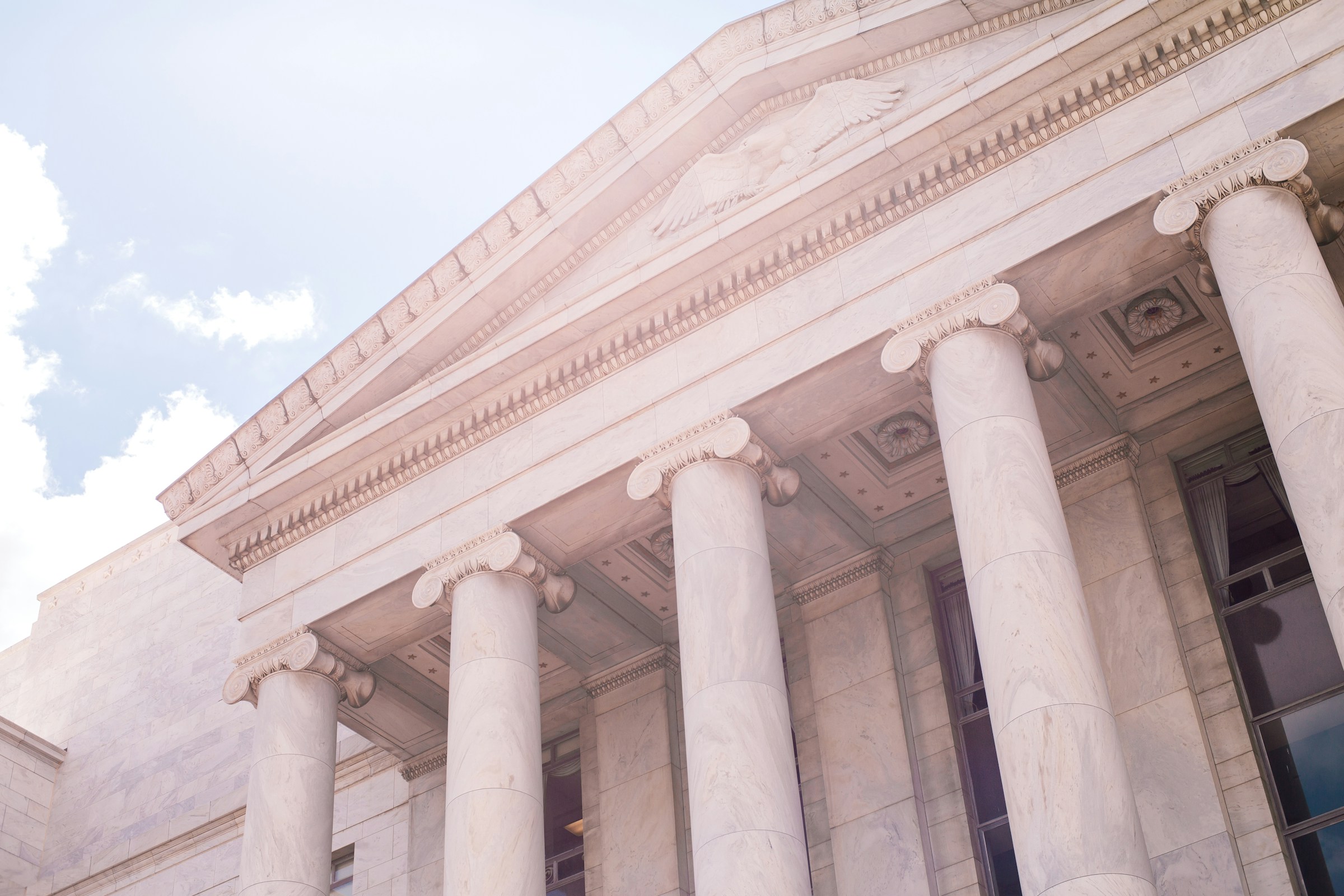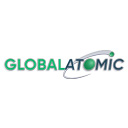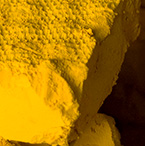Global Atomic's Dasa Uranium Project Gains Crucial Government Backing for 2026 Production Amid Rising Uranium Demand

Global Atomic secures Niger government support for Dasa uranium project; Q2 results show progress amid challenging market conditions.
Niger government confirms full support for Global Atomic's Dasa Uranium Project as the project remains on schedule to produce yellowcake in Q1 2026. Global Atomic Corporation (TSX:GLO) is a unique player in the resource sector, combining high-grade uranium mine development with cash-flowing zinc concentrate production. The company's primary focus is the development of the Dasa Uranium Project in Niger, discovered by Global Atomic geologists in 2010.
With the Dasa Project on track to commence yellowcake production in early 2026, Global Atomic is positioning itself as a significant new entrant in the uranium market, poised to capitalize on the growing global demand for clean nuclear energy. Simultaneously, Global Atomic holds a 49% interest in a zinc recycling operation in Turkey, providing a steady cash flow stream.
Niger Government Pledges Full Support for Dasa Uranium Project
In a significant development for Global Atomic Corporation, the Government of the Republic of Niger has issued a letter confirming its unwavering support for the company's Dasa Uranium Project. This endorsement, coming from the highest levels of the Nigerien government, underscores the strategic importance of the project to the nation's economic development and highlights the strong relationship Global Atomic has cultivated with local authorities.
Key Points of Government Support:
- Presidential Endorsement: President Tiani and the Council of Ministers have explicitly confirmed their support for Global Atomic and the Dasa Project.
- Facilitation of Project Implementation: The Head of State has instructed his Cabinet, the Minister of Mines, and all relevant Nigerien stakeholders to facilitate the implementation of Global Atomic's projects and investments.
- Recognition of Economic Impact: The government acknowledges the Dasa project as a cornerstone for socio-economic development, expecting it to play a crucial role in the national economy.
- Regulatory Compliance Appreciation: The letter commends Global Atomic for its consistent compliance with Niger's regulations, ensuring the continuity of the partnership.
- Strategic Investment Status: The inclusion of ANPIPS (National Agency in Charge of Strategic Investment Projects) in the communication confirms Dasa's status as a strategic investment for Niger.
Stephen Roman, President and CEO of Global Atomic, emphasized the significance of this governmental backing:
"This letter confirms what we've been telling all our stakeholders about the strong support from the Government of Niger for our Dasa Project and our significant progress in its development to date."
Project Development Progress
The Dasa Uranium Project continues to make substantial strides towards its production target in early 2026. Key developments include:
- Mine Development: Ramp development has progressed with over 1,235 meters completed, as of August 2024, with 7,000 tonnes of development ore hauled to surface. Level development in the footwall and decline development are ongoing, and raise boring is underway for crucial ventilation infrastructure.
- Safety Milestone: The Dasa Mine has achieved 732 days without a Lost Time Injury (LTI), showcasing the company's commitment to workplace safety.
- Plant Construction: Extensive earthworks commenced in Q2 2024 to prepare the site for the processing plant construction. The expansion of the Dajy Camp to accommodate increasing workforce is ongoing where a 250-person housing facility has arrived on site, with civil works underway. The Dasa Project Acid Plant fabrication is also completed and en route to the site.
- Engineering and Procurement: EPCM contractors have made significant progress on final engineering.Long-lead items have been ordered and the procurement team is advancing product specifications and vendor selection for plant equipment.
Financing & Market Conditions
Global Atomic is navigating a complex financing landscape to ensure the timely development of the Dasa Project.
A potential US$300 million debt facility from US Development Bank Facility is under consideration. The approval process was temporarily paused due to political developments in Niger but has since been reengaged. Target credit committee approval and final Board approval expected in Q4 2024.
In addition, Global Atomic successfully closed a C$20 million non-brokered private placement on July 31, 2024. The funds will to be used for advancement of the Dasa Project and general working capital.
The company is also in discussions with potential minority JV partners and exploring pre-payment options tied to uranium offtake agreements.
Stephen Roman commented on the financing situation:
"Although the bank postponed their July presentation of our Project to their credit committee, we remain confident that the bank will eventually approve our Project. Should the bank further delay their approval, we will move to finalize other financing discussions."
Turkish Zinc Joint Venture Performance
Global Atomic's diversified portfolio includes a 49% stake in a zinc recycling operation in Turkey, which has shown improved performance in Q2 2024:
- Processed 19,162 tonnes of Electric Arc Furnace Dust (EAFD).
- Zinc contained in concentrate shipments totaled 7.4 million pounds.
- The Company's share of the Turkish JV EBITDA was a gain of $2.8 million in Q2 2024, compared to a loss of $1.4 million in Q2 2023.
- Cash balance of the Turkish JV stood at US$5.1 million at the end of Q2 2024.
This improved performance is attributed to a return to normal steel mill production levels, a recovery in zinc prices, and lower input costs.
Market Outlook & Uranium Demand
The global push for clean energy solutions has reignited interest in nuclear power, driving up uranium demand and prices. Global Atomic is strategically positioned to capitalize on this trend with the Dasa Project. Dasa boasts one of the highest-grade uranium deposits in Africa. The project has an IRR of 57% at a uranium price of $75 per pound. As the only greenfield uranium project being actively developed, Dasa's timing advantage is poised to meet rising demand as it comes online in 2026.
Roman emphasized the project's unique position:
"The Dasa Project is unique as the highest-grade uranium project in Africa and the only greenfield uranium project being actively developed today. With an IRR of 57% at a uranium price of $75 per pound, this project is compelling, and the economic returns will only improve as we move closer to production in 2026."
Environmental, Social, & Governance (ESG) Considerations
Global Atomic has demonstrated a strong commitment to ESG principles in its development of the Dasa Project:
- Local Employment: The project currently employs over 450 people at the site, with expectations to increase to 900 during full construction.
- Skills Development: Prioritizing the employment and training of local Nigerien workforce for management and operational roles.
- Local Supply Chain: Emphasis on sourcing goods and services from Niger companies where practical.
- Government Partnership: The 20% ownership stake held by the Republic of Niger in SOMIDA (the operating company) ensures alignment of interests and shared benefits.
- Safety Culture: The impressive safety record at Dasa underscores the company's commitment to worker well-being.
- Environmental Stewardship: The project is being developed with a focus on minimizing environmental impact and adhering to international best practices.
Key Takeaways
Global Atomic Corporation presents a unique investment opportunity in the uranium sector. The company's key strengths include:
- World-class Asset: The Dasa Project's high-grade resource and favorable economics position it as one of the most attractive new uranium developments globally.
- Strategic Timing: With production scheduled for 2026, Global Atomic is well-positioned to meet the anticipated increase in uranium demand driven by the global push for clean energy.
- Government Support: The explicit backing from the Niger government significantly de-risks the project and underscores its national importance.
- Diversified Revenue: The cash-flowing zinc recycling operation provides financial stability and offsets some of the risks associated with mine development.
- Experienced Management: The company's leadership has demonstrated its ability to advance the project despite challenges, maintaining key relationships and hitting development milestones.
- ESG Focus: Global Atomic's commitment to local employment, skills development, and environmental stewardship aligns with the increasing emphasis on responsible resource development.
For investors looking at Global Atomic, the company offers exposure to the growing uranium market through a well-advanced project with strong economics and government support. The near-term production timeline sets it apart from many peers in the uranium space. While risks remain, particularly around financing and geopolitical factors, the potential rewards are significant as the world increasingly turns to nuclear power as a clean energy solution.
As Stephen Roman concludes, "This project will get funded and will get built." For investors with a appetite for the resource sector and a belief in the future of nuclear energy, Global Atomic Corporation represents a compelling opportunity to participate in the development of a significant new uranium producer.
Analyst's Notes




Subscribe to Our Channel
Stay Informed












































